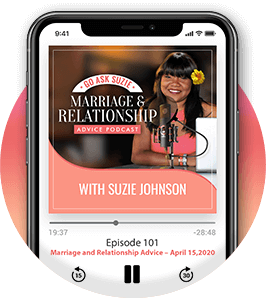![]() My partner of almost three years continually cheats on me. I have come to understand that there hasn’t been a time when he hasn’t been with at least one other woman, all while claiming to be in a “committed” relationship with me. When I have broached the subject with him, I’ve been faced with outright denial and outrage that I would even suggest such behavior of him. I’m ashamed to admit that I have always backed down for fear of losing a man who makes my life so special. I wonder what the harm is in ignoring his cheating? The time and life that we have together (prior to my knowledge of his serial cheating) is wonderful. Will he eventually grow out of cheating? What more can I lose?
My partner of almost three years continually cheats on me. I have come to understand that there hasn’t been a time when he hasn’t been with at least one other woman, all while claiming to be in a “committed” relationship with me. When I have broached the subject with him, I’ve been faced with outright denial and outrage that I would even suggest such behavior of him. I’m ashamed to admit that I have always backed down for fear of losing a man who makes my life so special. I wonder what the harm is in ignoring his cheating? The time and life that we have together (prior to my knowledge of his serial cheating) is wonderful. Will he eventually grow out of cheating? What more can I lose?
![]() Thank you for the opportunity to serve. I would like to begin by asking if you can recall a scene from the classic Charles Dickens novel Oliver Twist, wherein Oliver (a malnourished and starving orphan) finally gets the courage to ask for a second helping of porridge: Please sir, may I have some more? And he says it in such a sweet way. But the man in charge shouts back at him, “Moooorree? Moorreee? (Implying to little Oliver Twist, “How dare you ask for more? You should be happy with what you got!”)
Thank you for the opportunity to serve. I would like to begin by asking if you can recall a scene from the classic Charles Dickens novel Oliver Twist, wherein Oliver (a malnourished and starving orphan) finally gets the courage to ask for a second helping of porridge: Please sir, may I have some more? And he says it in such a sweet way. But the man in charge shouts back at him, “Moooorree? Moorreee? (Implying to little Oliver Twist, “How dare you ask for more? You should be happy with what you got!”)
Do you remember it? Good. Keep it on the back burner. I’ll tell you why it’s important later. For now, back to your email. You say you’re ashamed to admit that you back down when faced with his outrage and denial. What exactly triggers that feeling of shame? For instance, are you ashamed by your lack of courage to stand up to your principles and beliefs? Or are you ashamed by the fact that keeping him is more important to you than your own principles and beliefs? Or are you ashamed to admit that you prefer to avoid conflict, to avoid change and to avoid loss… no matter what the price?
Let me tell you why it’s so important for you to be able to discern which one of these ideas (or perhaps a combination of ideas) is triggering your feelings of shame.
You see for me, the real red flag in your question is not so much the question itself (which I will get to in a moment). The red flag is the feeling of shame you admit you get during the times you confront him. Because in my book, shame is never a good sign.
So before you even read any further, let’s take a moment and see whether we can zero in on what’s triggering that sense of shame. To help you do that, it might be useful if you had a better understanding of what shame is all about.
On a whole, shame is a natural human emotion. Not pleasant, but not lasting. We’ve all experienced it at some time or another. Shame is a triggered response to mistakes and goofing up — we slip on a banana peel or we discover our fly is open, a feeling of shame temporarily flares up, and then it subsides. (Like I said, not pleasant but also not lasting.) But there’s another type of shame… one that lingers, loiters and persists. We call that “toxic shame.”
When shame becomes toxic, it endures. Rather than just a passing feeling about our goofs or mistakes, our shame becomes toxic. We create an identity out of them. We forget that we only make mistakes, but we are NOT the mistakes we make. And instead of realizing that it’s our logic or thinking that’s flawed, we believe it’s us who are flawed. Instead of seeing that all human beings are imperfect (including ourselves), toxic shame triggers the belief that it’s only us that is defective in some way.
Bottom line?
People who carry toxic shame carry an image of themselves that is unacceptable to them.
Here’s an even bigger problem.
When people have a self-image that’s unacceptable to them, they will do almost anything to cover it up. They don’t want others to see what they are ashamed of about themselves. This leads to a fear of being exposed. A fear of being vulnerable. A fear of real intimacy (IN-TO-ME-SEE). This means that in our relationships, we may have emotional attachments, but we don’t have love. We may have sex, but we don’t have intimacy. We have agreements but not commitments. We have compliance, but we don’t have trust. We dip our toes in the water, but we don’t go all the way in. It also means we never truly love. Because to love… we must risk, we must be willing to be vulnerable, and we must allow ourselves to be truly seen.
Now how does all of this relate to you?
Well, here’s the connection. You say your partner was never committed to your relationship, but the question is, were you? Because we don’t commit to people. We commit to ideals and principles. So I’m wondering… how committed to monogamy are you really?
Here’s why I say that.
If you were really committed to monogamy as a way of life, would you really have backed down when you realized that he’s not committed to the same lifestyle as you are? Because here’s the thing: The word “commitment” means “unwavering loyalty to”. So the question to ask yourself is, do you really have an unwavering commitment to monogamy as a lifestyle? And if so, would you really have backed down when confronted with his lack of commitment? I’m not so sure about that. So maybe it’s time to evaluate what you’re truly committed to. Because as I said, it’s not people but principles that guide our commitments. He’s clearly demonstrated that he is NOT committed to living a monogamous lifestyle. You’ve also shown signs that you yourself are not that committed (you’re constantly backing down). So maybe it’s time for you to both talk about what you truly are committed to? (Obviously, monogamy is not it.)
But here’s another thing to consider…
What if… it’s NOT his lack of honesty or his lack of commitment to monogamy that is triggering your pain and shame? What if it’s your own lack of honesty (about what you want) and your own lack of commitment (to the values you secretly hold dear) that brought you here today? What if the real question is not, can you ignore HIS infidelity? But really… can you ignore your own?
Let me explain.
A lot of people assume that the word “infidelity” only relates to sexual indiscretions. But it doesn’t. For example, you can have a financial infidelity, or perhaps an emotional infidelity.
Here’s how the word breaks down:
Fidelity = loyalty to, faithfulness to, devotion to, committed to
When we put the prefix “IN” before “fidelity”, it negates the meaning. Therefore:
(IN)fidelity = NOT (Not loyal to, NOT faithful to, NOT devoted to, NOT committed to)
Keeping this in mind…
Have you considered that maybe it’s your own lack of faithfulness and lack of commitment to monogamy that’s triggering the pain and shame you feel? Maybe it’s not that you’re having trouble ignoring his lack of fidelity. Maybe you’re having problems ignoring your own because contrary to popular belief, the infidelity we hold within… often attracts infidelity in others.
If any of that is ringing a bell for you, here’s what I want you to do.
Grab a sheet of paper. Answer the following two questions (you can be fearless about this because no one is looking):
1) What would I want in a relationship if I weren’t ashamed to have it?
2) What else would I ask for in my relationship if I weren’t afraid to have it?
Notice: Neither of these questions is about THIS relationship or about THIS particular person. This is about attainability. It’s a matter of what you’re afraid to have, what you’re ashamed to have, and what you’re willing to settle for instead because you’re afraid you can’t have what you really want.
You see…
The secret to overcoming toxic shame is not about shaming yourself, beating yourself up, or feeling guilty about the areas where you fall short. (That only reinforces the problem.) Instead, the secret to overcoming shame is in making a commitment to asking for the things that are good for you.
Shocking, right?
It’s your own fidelity (and loyalty) to those actions, ideas and principles that make you feel good about yourself that will neutralize shame and low self-esteem, which in turn raises self-worth, self-acceptance and your overall relationship satisfaction.
It basically boils down to this: being loyal to what makes you feel good about yourself. And from your email, it seems that things like honesty, trust and courage are high on your list — not just as attributes in others but also as attributes in yourself. If that’s true, ask yourself:
If I totally committed to feeling good about myself, what would I say or do differently?
(Hint: The answers to that question unleash a whole new level of awesomeness in your life.)
Now… on to the second part of your question: can you simply ignore his cheating?
The obvious answer is yes. (But you already knew that, because you’ve already been doing it.) But I think there’s another question hidden within that question. I think the real question is, can you ignore how bad it makes you feel to ignore his infidelities? Can you ignore the shame it triggers? (Something to really think about.)
It seems to me from the nature of your email, you’re torn in two directions.
A part of you wants to go back to the good old days when you didn’t know the truth. It wants you to just ignore his cheating and continue the relationship because it’s safer to keep what you have, rather than lose it all by asking for more.
But there must also be another part of you that’s NOT okay with doing that. There must be a part of you that’s NOT okay with ignoring his behavior. There must be a part of you that’s NOT okay with deceptions. There must be a part of you that’s NOT okay to ignore the reality of what’s going on… or else, why would you have written the question?
The question is, which part wins?
That’s totally your call because listen… you know I can’t give you permission to ignore his infidelities. Only you can give yourself permission to do that. And I can’t decide what’s appropriate or not appropriate for you to ignore. Only you can do that. Remember: deception is about the lies you tell others. Delusion is about the lies you tell yourself. And denial is about the lies you use to help you live with the lies you’ve told yourself. So only you can decide what is true, right and appropriate for you.
Now remember the Oliver Twist scene? It seems to me you’re caught in a similar situation. The question is, will you find the courage to risk asking for more, or will you put up with the rations you’re already getting?
My advice? Ask for more! Could it cost you the relationship? Yes. But here’s the thing. While you can stand losing a man, can you stand losing your dreams of having an honest, open and loving relationship? Either way, you risk.
Until we speak again…
Remember… Love Wins!

































